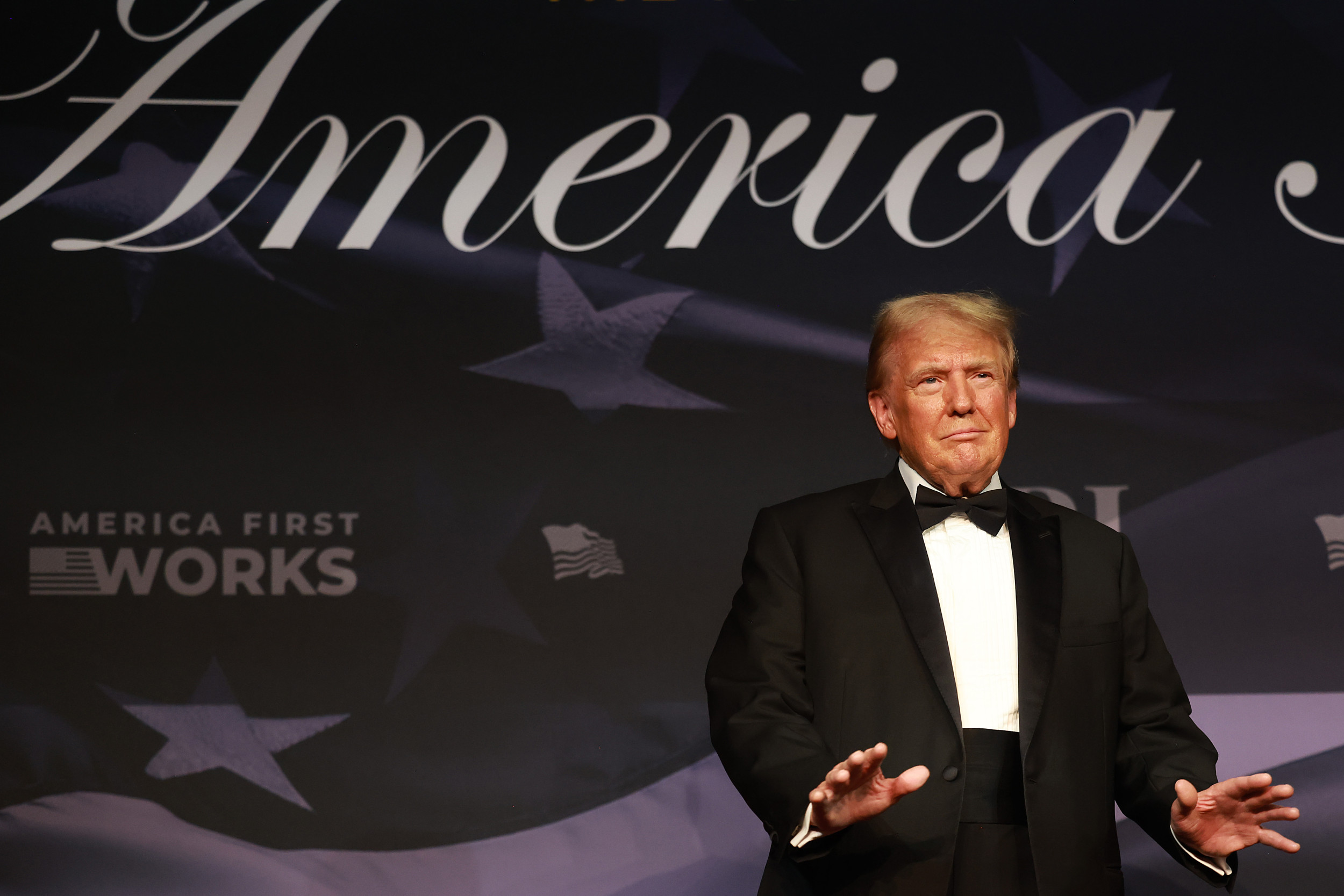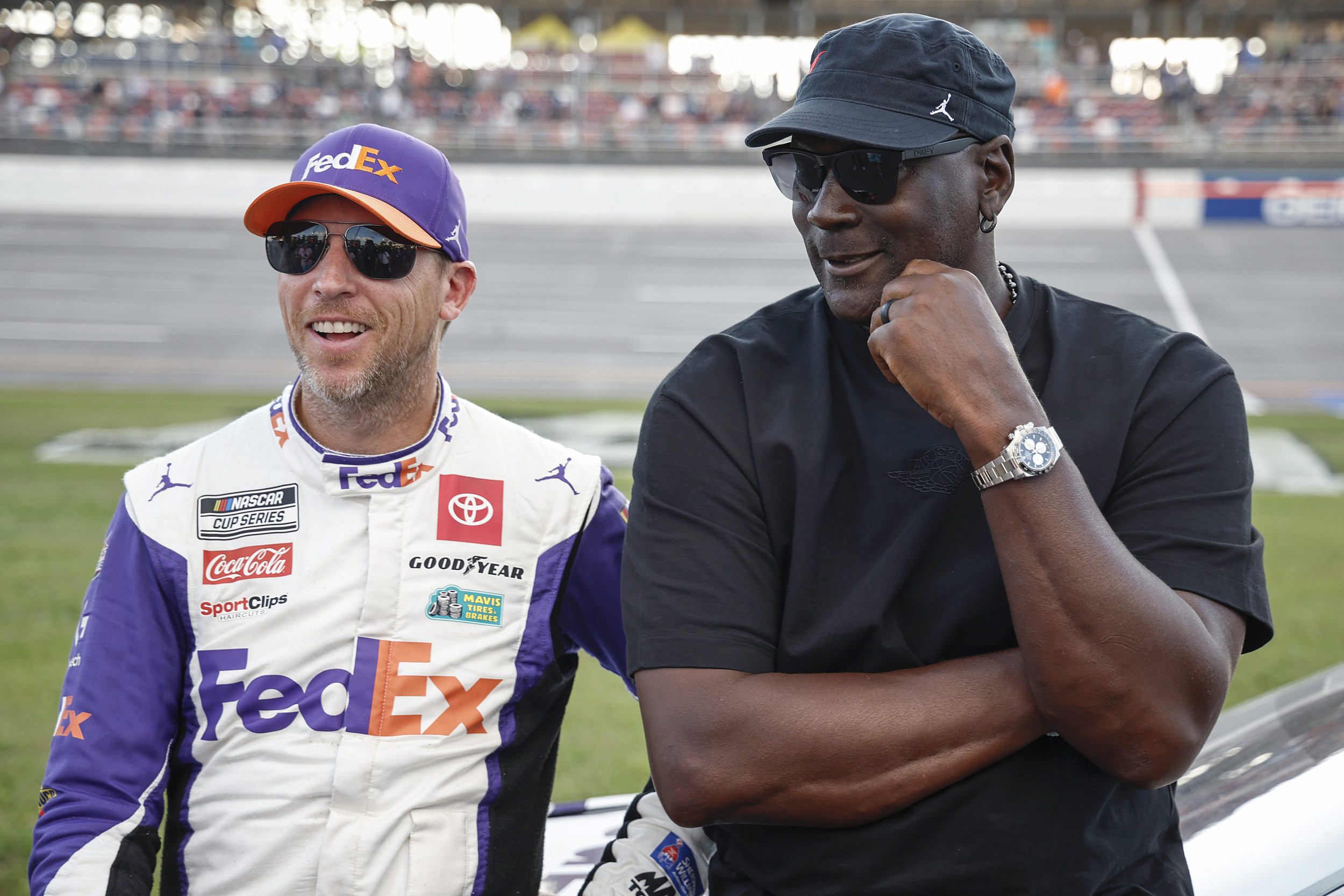Luxury British car manufacturer Jaguar's rebrand has been met with confusion and criticism online after the company posted a promotional video focusing on diversity and not showing any cars.
The new ad, posted by the brand on X, formerly Twitter, on Tuesday, features models of all ages and races stepping out of an elevator adorned in avant-garde makeup and clothes, with various marketing slogans such as "live vivid" and "delete ordinary" peppered throughout the 30-second commercial.
Despite what you may expect from one of the world's most storied vehicle brands, there is a distinct lack of any cars, which has prompted backlash online, including from Tesla CEO Elon Musk. Responding to the post, Musk wrote: "Do you sell cars?"
Newsweek has contacted Jaguar for comment via email outside of regular working hours.
Lulu Cheng Meservey, co-founder of Rostra PR group, called the rebrand "disastrous," saying any ad from the company should "highlight innovation, and engineering" and "pick a clear lane for branding."
"It's possible a marketing exec read too many think pieces about how millennials shop based on values and forgot that people want cars that are really well built," she wrote on X.
Some commentators compared the rebrand to that of Bud Light, which garnered significant controversy for partnering with transgender influencer Dylan Mulvaney last year. A number of users on X have now accused Jaguar of going "woke" and straying from its usual audience.
Defending its ad on social media, the brand's official account responded to some complaints and questions with vague answers. "The story is unfolding. Stay tuned" and "Think of this as a declaration of intent," were two of the responses made to puzzled X users.

Why is Jaguar Rebranding?
The rebrand comes as has manufacturer suffered from dwindling sales in recent years. Last year, fewer than 67,000 Jaguar cars were sold worldwide, roughly half the number sold during the fiscal year that included the start of the coronavirus pandemic. Currently, there are only 122 Jaguar dealerships in the U.S., a significant decline from a peak of about 200, as reported by Car and Driver magazine.
In preparation for the total overhaul, new cars were taken off-sale more than a year ago, with one new all-electric car due to go on sale in 2026 and two more following it.
"To bring back such a globally renowned brand we had to be fearless," Rawdon Glober, Jaguar's managing director, said in a press release. "Jaguar was always at its best when challenging convention. That ethos is seen in our new brand identity today and will be further revealed over the coming months. This is a complete reset. Jaguar is transformed to reclaim its originality and inspire a new generation. I am excited for the world to finally see Jaguar."
"This is a reimagining that recaptures the essence of Jaguar, returning it to the values that once made it so loved, but making it relevant for a contemporary audience," Professor Gerry McGovan, Jaguar's chief creative officer, said, saying the rebrand could restore its "status as a brand that enriches the lives of our clients and the Jaguar community."
Jaguar Moves From Male Audience to Focus on Diversity
Jaguar holds a reputation for targeting male car drivers — and ones with plenty of money. For instance, the company's "Good to be Bad" campaign in 2014 featured British male actors such as Tom Hiddleston and Ben Kingsley portraying suave villains, reinforcing a masculine brand image.
Now, the carmaker says it is transitioning to products for the "design-minded" and "cash rich, time poor." While the company hasn't given any further insight into specific demographics it may wish to capture, it is expecting to let go of a considerable majority of its current consumer base.
"We assume that 10 to 15 percent of our current Jaguar customers will follow us, so relatively few," managing director Rawdon Glover said in an interview with Motor1 in July.
Speaking in October at the Attitude Awards, a celebration of LGBTQ+ icons for which Jaguar is a sponsor, Jaguar's head of brand strategy Santini Pietrosanti shone a light on Jaguar's recent push towards inclusivity and adoption of diversity, equity and inclusion (DEI) programs.
"At Jaguar we are passionate about our people, and we are committed to fostering a diverse, inclusive and unified culture that is representative not only of the people who use our products, but in a society in which we all live, a culture in which our employees can bring their authentic selves to work," he said
"And we are on a transformative journey of our own, driven by a belief in diversity, inclusion, creativity, policy and most importantly, action. We've established over 15 DEI groups," Pietrosanti added.
Meservey addressed this shift in target audience in their post, saying that Jaguar abandoning its traditional male audience is a mistake.
"If they're going to abandon the male audience, they should replace it with a more lucrative audience, and it's unclear who they're going for here. Vegans?," she said.
Jaguar Faces Potential Bud Light-style Backlash
Recent rebrands in the retail world, particularly those which have pivoted toward younger generations and those from the LGBTQ+ community, have faced considerable backlash.
In an ad that also celebrated diversity and inclusion, Bud Light's Instagram promotion by transgender influencer and activist Dylan Moroney last year led to an avalanche of criticism, calls for a boycott, and plummeting sales. Two marketing executives at parent company Anheuser-Busch InBev subsequently took a leave of absence, while Bud Light lost its decadeslong position as America's best-selling beer.
Other companies, suchas a Target and Starbucks, have also faced a backlash after making efforts to appeal to the LGBTQ+ community. Items sold in Target stores for Pride Month had to be pulled from shelves in some U.S. regions after hostility from customers who at times confronted workers and tipped over displays.



















 English (US) ·
English (US) ·